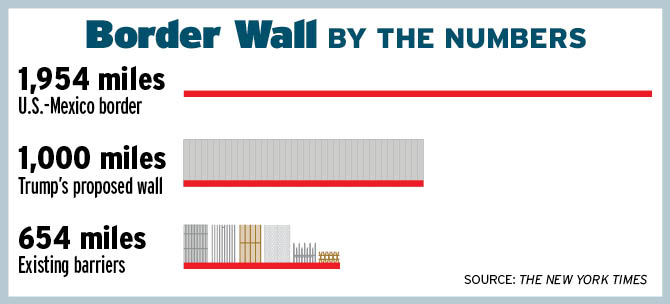Welcome to Week 11.
MONDAY: Today I collected last week's bell ringer assignment (Week 10 Bell Ringers). Then, the students completed today's bell ringer assignment (see below). We spent the remaining time in the class period reading, annotating, and completing the practice problems in Lesson 15: Errors in Inductive Reasoning.
Homework: Finish reading, annotating, and completing all practice problems in Lesson 15.
TUESDAY: Due to the FSA Writing Test that took place today, we experienced a shortened class period. After completing the bell ringer for today, we discussed the logical fallacy of Post Hoc, Ergo Propter Hoc (False Cause) and the corresponding practice question in Lesson 15.
WEDNESDAY: Today I returned 3 graded assignments: the logical fallacies worksheet, the quiz, and last week's bell ringers assignment. After completing today's bell ringer assignment (see below), the students viewed 4 short videos (click on the fallacies below to view the videos) on the logical fallacies presented in Lesson 15. Afterwards, they were given some time in class to add these 4 logical fallacies to the Logical Fallacies Study Guide that they started last week.
Chicken and Egg video
Hasty Generalization video
Composition video
Post Hoc, Ergo Propter Hoc video
Homework: Add the remaining 4 logical fallacies to your study guide that you started last week (format shown below), and STUDY FOR THE QUIZ that you will take tomorrow covering all 8 logical fallacies.
5. (Name of the logical fallacy)
a. Definition:
b. Additional information:
c. Example:
THURSDAY: After completing the bell ringer assignment today, the students took a Logical Fallacies Quiz. If they finished the quiz before the class period ended, they were instructed to complete their study guide. I collected the Logical Fallacies Study Guide at the end of the class period.
FRIDAY: After completing today's bell ringer assignment, the students read the article,
Battle Over the Border Wall, from Scholastic's Upfront Magazine. This article is posted below. After reading the article, the students answered the following 4 questions by applying everything they know about how to write an accurate written response. As well, for each response they were required to write their answer using only the following number of sentences:
Question #1: Use 2 sentences for your response.
Question #2: Use 1 sentence for your response.
Question #3: Use 3 sentences for your response.
Question #4: Use 2 sentences for your response.
Homework: Complete the 4 questions about the article.
Battle Over the Border Wall
What you need to know about the legal showdown over the president’s national emergency declaration
On February 15, President Trump declared a national emergency to fund the construction of a 1,000-mile wall on the border with Mexico after Congress provided money for only a sliver of the project.
The announcement came as the president signed a spending deal negotiated by Democrats and Republicans in Congress that included $1.375 billion for border fencing, but not the $5.7 billion Trump had been demanding for construction of a much longer wall. The agreement headed off what would have been the second shutdown of the federal government in the space of a month over the issue. But Trump’s declaration prompted lawsuits that set up a constitutional showdown over the separation of powers and the president’s authority.
Here’s what you need to know to understand the battle over the emergency declaration.
What’s the conflict about?
Since December, Trump has been asking for $5.7 billion to build a wall along the southern border. About 650 miles of the 2,000-mile-long border between the U.S. and Mexico already have some kind of barrier (see graphic below). Building a wall along the entire border was a key campaign promise—something Trump said would stop the flow of undocumented immigrants and illegal drugs into the U.S.
Trump’s insistence on billions for the wall after Congress refused to allocate it led to a government shutdown that began in late December and lasted a record 35 days, forcing some 800,000 federal employees to go without their paychecks.
In response to Trump’s emergency declaration, 16 states, including California and New York, filed a lawsuit arguing that the president doesn’t have the authority to divert funds for constructing a wall along the Mexican border because Congress controls federal spending.
The Border Wall
The 2,000-mile-long border between the U.S. and Mexico, now so contentious, wasn’t even well marked in earlier days.
What’s a national emergency?
Congress has enacted laws that permit the president, upon declaring a national emergency, to take steps that would normally be forbidden by law. The idea is to allow the executive branch to move quickly in emergency circumstances.
The National Emergencies Act of 1976 gives the president broad authority to decide whether an emergency exists. Presidents have used this law to declare emergencies about five dozen times. But most of those cases dealt with foreign crises and involved freezing assets or blocking trade or exports, not redirecting money without congressional authorization.
White House officials cite two times that such emergency declarations were used by presidents to spend money without legislative approval—once by President George H.W. Bush during the run-up to the Persian Gulf War (1990-91), and then by President George W. Bush in 2001 after the 9/11 terrorist attacks.
Legal experts have pointed to several statutes that permit the executive branch to redirect military construction funds in an emergency. One such law, for example, permits the secretary of defense to begin military construction projects “not otherwise authorized by law” that support the armed forces.
No wall can be built until the lawsuits are resolved.
Is there really an emergency at the border?
That’s the crux of President Trump’s argument. “We’re talking about an invasion of our country,” Trump said when he announced the emergency declaration, “with drugs, with human traffickers, with all types of criminals and gangs.”
Critics argue that the facts don’t support that. The number of people crossing the border illegally is far lower than it was in the late 1990s and early 2000s, according to official government statistics. The relatively new and growing phenomenon of caravans of Central American migrants consists largely of families who present themselves to border officials and request asylum, rather than trying to elude authorities. Thousands of these Central American families have been apprehended in recent months. Critics say a wall would have little effect on the flow of illegal drugs into the country, which U.S. Customs and Border Protection says are mostly smuggled through official ports of entry.
President Trump may also have undercut his own argument for declaring an emergency when he told reporters at the White House, “I didn’t need to do this, but I’d rather do it much faster. I just want to get it done faster, that’s all.”
“Probably the best evidence [for overturning the declaration] is the president’s own words,” says California Attorney General Xavier Becerra.
Why is this showdown a big deal?
While President Trump argues he’s well within his rights to declare an emergency, constitutional scholars and many lawmakers are alarmed that his decision sets a dangerous new precedent. The Founders deliberately gave Congress, not the president, the authority to make laws and to allocate money—the so-called “power of the purse.” What will prevent future presidents, they argue, from declaring emergencies if they can’t get Congress to approve whatever project they want?
“It sets a precedent that a president can, without regard to an actual existence of an emergency, use this tool to
evade the normal democratic process and fund projects on his own,” says William Banks, a Syracuse University law professor.
The lawsuits filed against President Trump—and the likelihood that others will soon follow—means that with court actions pending a wall won’t go up anytime soon.
It’s not clear how the legal questions will be resolved. The courts are often reluctant to substitute their own judgment for the president’s when it comes to security matters. In other words, the courts may not even address the question of whether the facts
warrant an emergency declaration, preferring instead to defer to the president on a national security issue. The courts could end up focusing on whether states can show they’re being harmed by the president’s diversion of funds to build the wall.
In addition to the uncertainty about how the courts will rule is the possibility that Congress could get fed up with presidents using emergency powers and vote to restrict them.
“The risk the president runs is that Congress will take away much, if not most, of the discretion it’s given to the president,” says Stephen Vladeck, a law professor at the University of Texas, Austin. “And then the concern is that Congress could hamstring a future president from having all the tools he or she might need to react to a future emergency. So a short-term win for the president could become a long-term loss for the presidency.”
With reporting by Charlie Savage and Robert Pear of The Times.
THIS WEEK'S BELL RINGER ASSIGNMENTS:
Monday: Correct the grammar.
1. after looking in every room, they still couldnt find me and tomas
2. which one of you are going to do the shopping for grandma
Tuesday: Correct the grammar.
1. after i write this letter im going to do the dishes take a walk and read a book
2. there going away for a Week and then theyll visit chuck and i
Wednesday: Correct the grammar.
dear sir or madam
please send replacement part #685 as soon as possible a check is enclosed
sincerely
yukio i ishigure
Thursday: Correct the grammar.
1. father said that its to cold to lay by the pool this morning
2. the boys they could of visited us if we had known they were in the neighborhood
Friday: Correct the grammar.
1. this spring said julio were taking a trip to visit the east
2. while waiting for the Movie to begin, rebecca remarked im thirsty
















































